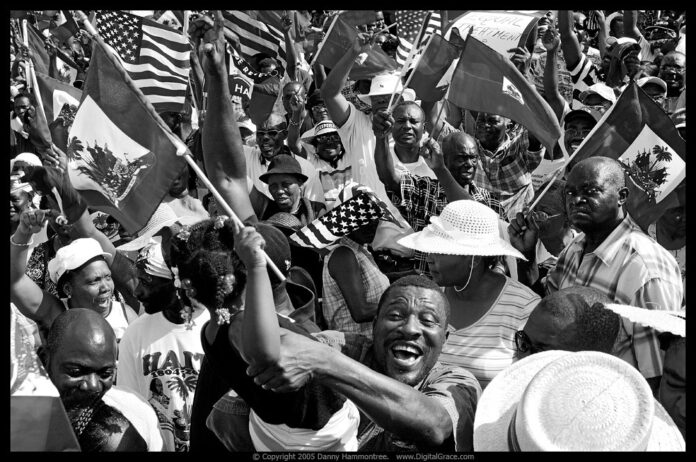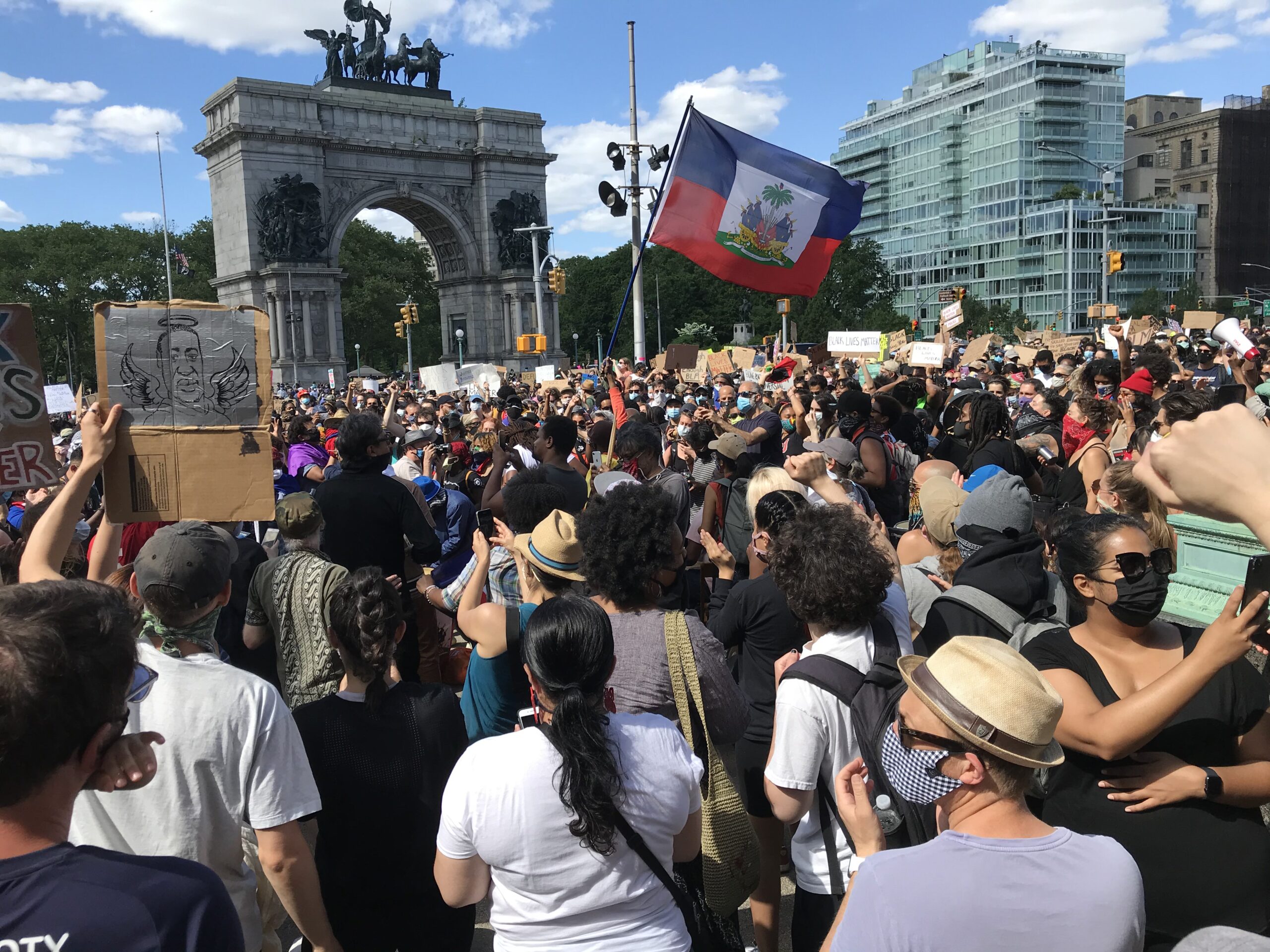
I grew up in the United States as an undocumented Haitian-Canadian teenager in a midwestern city where I had nowhere to turn for immigration assistance. Once I became an immigration lawyer, I was keenly aware of the ways Black immigrants like me are often overlooked in conversations about immigration advocacy and service provision, even in places like New York City. Even as I tried to highlight our importance, what I perceived as our ongoing invisibility was deeply dispiriting.
In the wake of the Black Lives Matter protests that erupted around the country and the world, many individuals and organizations began a journey to grapple with and unpack their complicity in anti-Black racism. For the first time, I am hopeful that immigration advocates and organizations will begin to confront the anti-Black racism that limits movements for immigrant justice.
Anti-Blackness has determined the racial trajectory of our immigration policies since the conception of our immigration system. The Naturalization Act of 1790 authorized only “free white persons” to become citizens. The U.S. government’s discriminatory response to Black Haitian asylum seekers birthed the mass immigration detention system nearly 40 years ago. When Haitians began fleeing the brutal dictatorship of Jean-Claude Duvalier en masse in the 1970s, the Immigration and Naturalization Service (INS) responded by detaining them. The government then instituted a mandatory detention policy with no possibility of bond, aimed nearly exclusively at Haitian asylum seekers.

Advocates and activists immediately launched litigation and protests to challenge the anti-Black, discriminatory practice of detaining Haitians. But when the challenge reached the Supreme Court, in the 1985 case Jean v. Nelson, the Court punted, avoiding the question of whether the Constitution’s equal protection guarantee applied to Haitian immigrants seeking asylum. Justice Thurgood Marshall took the Court to task for its failure to address discrimination based on race and nationality head on. In his now famous dissent, he maintained that the asylum seekers had a constitutional right to be protected from racial discrimination. Irwin Stotzky, a law professor and one of the attorneys who represented the Haitian asylum seekers, explains that Black and brown immigrants continue the same struggle today: “the right to be seen as a human being and to be protected like anybody else would be protected in this country.”
Anti-Blackness did not end in the 1980s. Anti-Blackness helps to explain why Black immigrants are disproportionately criminalized and punished to this day. While only 7% of non-citizens in the U.S. are Black, Black immigrants represent 20% of those facing deportation on criminal grounds. In detention, Black immigrants from Africa and the Caribbean are sent to solitary confinement six times more often than the detained population at large. Nana Gyamfi, Executive Director of the Black Alliance for Just Immigration (BAJI), described that anti-Blackness also exists within the immigrant rights movement “because of this unfamiliarity with our issues and an unfamiliarity with advocating for issues that they don’t see affecting [immigrants] directly.” Gyamfi is clear about what advocates can do to begin rectifying this: “Center Black immigrants in the work that you’re doing.”
We can’t readjust the immigration system until we dismantle mass incarceration
Professor and co-director of NYU Law’s Immigrant Rights Clinic, Alina Das added: “The immigrant rights movement has to show up for Black lives in general. We can’t readjust the immigration system until…we dismantle mass incarceration, until we divest from failed policies like policing, prosecution, and prisons and instead invest in Black communities. Doing that in and of itself would achieve huge gains for immigrant communities, both Black immigrants, as well as other immigrants of color.”
Today, as in the past, how we treat Black immigrants impacts how we treat all immigrants. Real progress towards immigrant justice demands that we collectively work to dismantle anti-Blackness in the system and in ourselves. I’d like to think my burgeoning hope, sparked this summer, will be justified, and that the immigrant rights movement will, in fact, show up for Black immigrants. And that 30 years from now, far more Black immigrants will have the representation and advocacy they need and deserve.
The quotes from this article are from the podcast series, “The Other Side of the Water: Immigration and the Promise of Racial Justice.” The podcast series precedes the conference, Immigration, Racial Justice and Equal Protection: The Legacy of Jean v. Nelson, which will be held virtually on October 22nd and 23rd, 2020. The conference commemorates the 35th anniversary of Jean v. Nelson and features panels that delve into the intersection of racial justice and immigration. Register here.
Gabrielle Apollon is the Haiti Project Deputy Director and a supervising attorney at NYU School of Law’s Global Justice Clinic.









